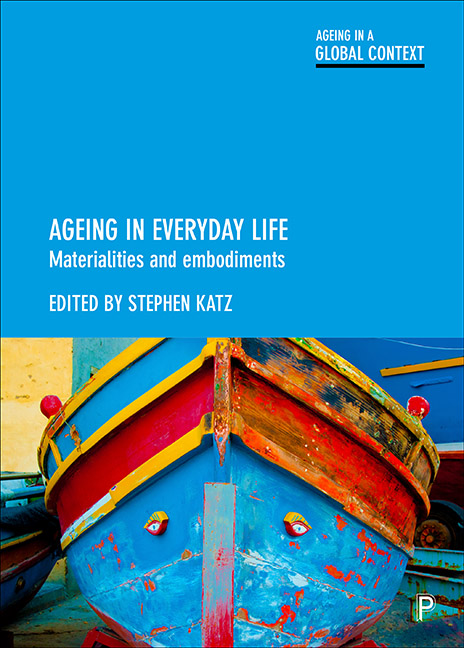Twelve - Afterword. Relational entanglements: ageing, materialities and embodiments
Published online by Cambridge University Press: 22 April 2022
Summary
“Ageing, it sure isn't what it used to be.” So quipped a woman in her 80s when interviewed about her media and communication practices. When I pressed her to explain, she simply nodded towards her large screen television, the remote controls on the coffee table, her mobile phone and the tablet computer that was a recent gift from her children. With a wry laugh and a nod of the head, she articulated much with embodied economical eloquence. Her choice of phrase, her gestures and the sight of this plethora of digital techno-media in her living room immediately brought to mind images of visits with my Baba (grandmother) some 30 years earlier. My Baba's life, of course, was not absent of either media or technologies. She had newly bought a microwave oven with a digital readout to warm dishes from the small chest freezer tucked in her hall closet. Her daily routines were synched to the rhythms and flows of her favourite shows, or “my stories” as she called them, on her television. She often noted how her experiences of ageing were distinct from that of her mother, mostly for the better in her opinion. She had her own private telephone not a “party line”. She never felt the pressure to don a ‘babushka’ (a traditional Ukrainian head covering) even when attending church at Easter.
My relationship with my grandmother gave me a lasting view of the intimate flows of everyday life that constitute the meanings of growing older. Her world of ageing, full of moments, engagements, things and experiences, created a meshing of resources that also contextualised her time and place, the 1980s in Manitoba, Canada, when austerity programmes were not in full swing either federally or provincially. She had access to a variety of health and home-care services then provided by the provincial government. (If she were alive, I am sure she would have noted, with dismay, how successive changes to pensions, rates of inflation, and cutbacks to subsidised services would have transformed her everyday life and conditions of existence.) When we are privileged enough to be in touch with and touched by an older person, we can learn how the seemingly ordinary contexts of their everyday life are maps and paths to understanding the wider culture in which ageing is situated.
Information
- Type
- Chapter
- Information
- Ageing in Everyday LifeMaterialities and Embodiments, pp. 215 - 224Publisher: Bristol University PressPrint publication year: 2018
